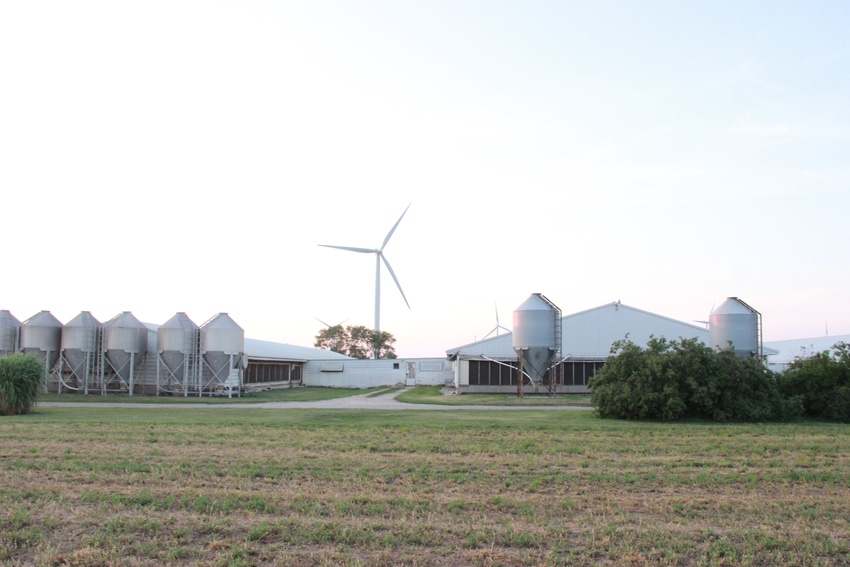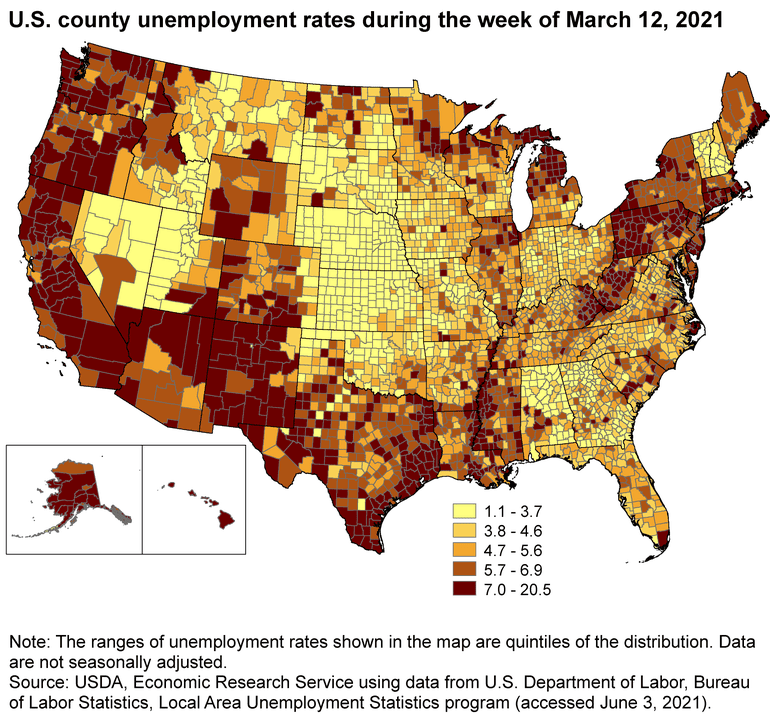Most common theme that runs through every topic of concern for swine producers is labor.
July 21, 2021

Ask a swine producer what key challenges they face today, and you will hear an array of concerns from succession planning to customized pig care and everything in between. But the most common theme that runs through every topic is labor.
Pig farmers are incredibly nimble. When tasked to house sows differently to meet the demands of consumers, it is the people within our farms who step up. They find ways to provide for the fundamental needs of our herds in ways that do not sacrifice the ability to deliver individual care to our pigs. As farms look to capture value for providing attributes demanded by consumers, they will need more labor.
A challenge that farms across rural America have faced is simply finding the people to provide this care. Not only are rural populations in decline, but unemployment is also low across rural America. In the map below, you can see that counties where the majority of pigs are raised have even lower unemployment levels than urban areas. This leaves farmers to look for workers from outside their regions.

Regardless of size, pig farmers are increasingly looking to foreign-born guest workers to fill the labor resource void. The challenge in the hog industry is that there is no program that allows for a year-round employment of core animal care providers. Existing programs are limited to highly educated people and a complex application process. Often, farms look to attorneys and consultants who charge thousands of dollars to help a them navigate through complex visa programs. Farm staff have largely welcomed their foreign-born counterparts with open arms. The skill sets visa workers bring and the added coverage they provide allows for proper distribution of responsibilities. Having this bandwidth helps avoid burn out and keeps team members focused on worker safety and animal care. This ultimately drives employee satisfaction and retention.
Packing plants, like farms, struggle to find labor. While farms have limited visa tools to securing foreign-born labor, the packing community has no such programs. The pork industry is current on slaughter runs with market weights in check after the severe back-up we experienced during COVID-19 in the summer of 2020. Even so, packers and processors are short the labor they need to capture the value-added potential in each pig. The resources aren’t there for de-boning or breaking down larger muscle cuts into specialized products. By not capturing full value of these premium products, bulk product is forced through the system rather than being aggressively pulled by retailer and food service demand. While domestic demand has been strong, it could be even greater if these premium pork products were available to consumers. The cutout benefits from the demand of further processors. Without this demand, potential farm revenue and profitability is constricted for both the farmer and the packer.
The National Pork Producers Council (NPPC) has led the charge of working with our elected officials in Washington, D.C. to move towards a workable solution through these labor dynamics. Through the Work Force Modernization Act, conversations are being held with members of Congress about expanding the H-2A program to provide year-round labor, removing caps and expanding eligibility to livestock operations. The solution should be inclusive of all segments of agriculture and should open the conversation about families of visa workers. Our farms and rural communities have benefited from the diversity brought on by today’s programs. Now is the time to think about the many benefits of visa reform.
I encourage producers to engage with their state pork producer associations and NPPC to learn more about how we as individual stakeholders can help Congress see a way to a solution.
Daryl Timmerman is a senior swine lending specialist for Compeer Financial. For more insights from the Compeer Swine Team, visit Compeer.com/swine.
Sources: Daryl Timmerman, Compeer Financial, who are solely responsible for the information provided, and wholly own the information. Informa Business Media and all its subsidiaries are not responsible for any of the content contained in this information asset.
You May Also Like



